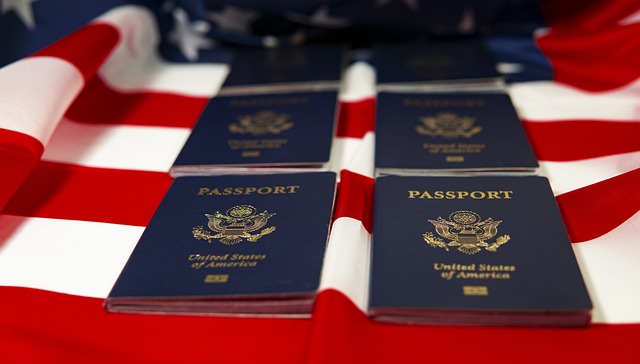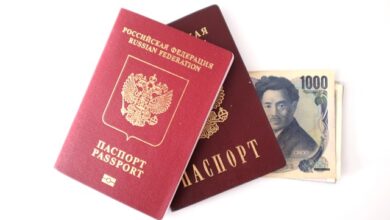What Happens If Your Residence Permit Expires?

If you’re living in a country on a residence permit, it’s crucial to ensure that your permit remains valid at all times. Allowing your residence permit to expire can lead to serious consequences, including legal penalties, deportation, or difficulties re-entering the country. Below is a detailed explanation of what happens if your residence permit expires, along with steps you can take to address the situation.
1. Immediate Consequences of an Expired Residence Permit
When your residence permit expires, you lose your legal right to stay in the country. The specific consequences depend on the country’s immigration laws, but here are some common outcomes:
a. Loss of Legal Status
- Once your permit expires, you are no longer considered a legal resident.
- You may be classified as an “overstayer” or “illegal immigrant,” which can have long-term implications for future visa applications or residency permits.
b. Restrictions on Rights and Services
- You may lose access to certain rights and services, such as:
- Working legally.
- Accessing healthcare or social benefits.
- Opening a bank account or renewing official documents.
- Traveling freely within the country or abroad.
c. Risk of Fines or Penalties
- Many countries impose fines for overstaying a residence permit. For example:
- In France, overstaying can result in fines ranging from €180 to €750, depending on the duration of the overstay.
- Other countries may impose higher penalties or additional charges.
d. Deportation or Removal Orders
- Immigration authorities may issue a deportation or removal order if they discover that your permit has expired.
- Deportation can lead to a ban on re-entering the country for a specified period (e.g., 1–10 years).
e. Difficulty Reapplying for Visas or Permits
- Overstaying can negatively impact future visa or residence permit applications. Immigration officials may view you as a high-risk applicant, making it harder to obtain approval.
2. What Should You Do If Your Residence Permit Expires?
If your residence permit has already expired or is about to expire, it’s important to act quickly to minimize the consequences. Here are the steps you should take:
a. Contact Immigration Authorities Immediately
- Reach out to the relevant immigration office or department responsible for residence permits. Explain your situation and inquire about options for renewal or regularization.
- In many countries, there is a grace period during which you can still apply for renewal without facing severe penalties.
b. Apply for Renewal or Extension
- If your permit has recently expired, you may still be able to apply for renewal. Gather all required documents, such as proof of income, housing, and health insurance, and submit your application as soon as possible.
- Some countries allow late renewal applications if you provide a valid reason for the delay (e.g., illness, administrative errors).
c. Request Regularization (If Applicable)
- In certain cases, you may be eligible for regularization, which allows you to regain legal status despite the expiration of your permit. This often requires demonstrating strong ties to the country, such as employment, family, or property ownership.
d. Avoid Traveling Abroad
- Traveling outside the country with an expired residence permit can complicate your situation. Border control officers may deny you re-entry, even if you were previously a legal resident.
e. Seek Legal Advice
- Consult an immigration lawyer or advisor to understand your options and avoid making mistakes that could worsen your situation.
- A lawyer can also help you prepare a strong case for renewal or appeal any negative decisions by immigration authorities.
3. Preventing Future Issues
To avoid the stress and complications of an expired residence permit, follow these tips:
a. Track Expiration Dates
- Keep a record of your permit’s validity period and set reminders well in advance of the expiration date.
b. Submit Renewal Applications Early
- Most countries allow you to apply for renewal several months before your permit expires. Start the process early to account for potential delays.
c. Maintain Compliance with Visa Conditions
- Ensure you meet all conditions of your residence permit, such as maintaining employment, enrolling in school, or having sufficient financial resources.
d. Stay Informed About Changes in Immigration Laws
- Immigration policies can change frequently. Stay updated on any new requirements or procedures that may affect your permit.
4. Country-Specific Examples
France
- In France, if your titre de séjour (residence permit) expires, you must apply for renewal at your local Préfecture within a specific timeframe. Late applications may be accepted if you can justify the delay.
- Overstaying without applying for renewal can lead to fines, deportation, or a ban on returning to France.
United States
- In the U.S., overstaying a visa or green card can result in a bar on re-entry. For example:
- Overstaying by more than 180 days but less than one year leads to a three-year ban.
- Overstaying for more than one year results in a ten-year ban.
United Kingdom
- In the UK, overstaying a visa can lead to removal, a re-entry ban, and difficulties obtaining future visas. However, you may be eligible for an extension or switch to another visa category under certain conditions.



